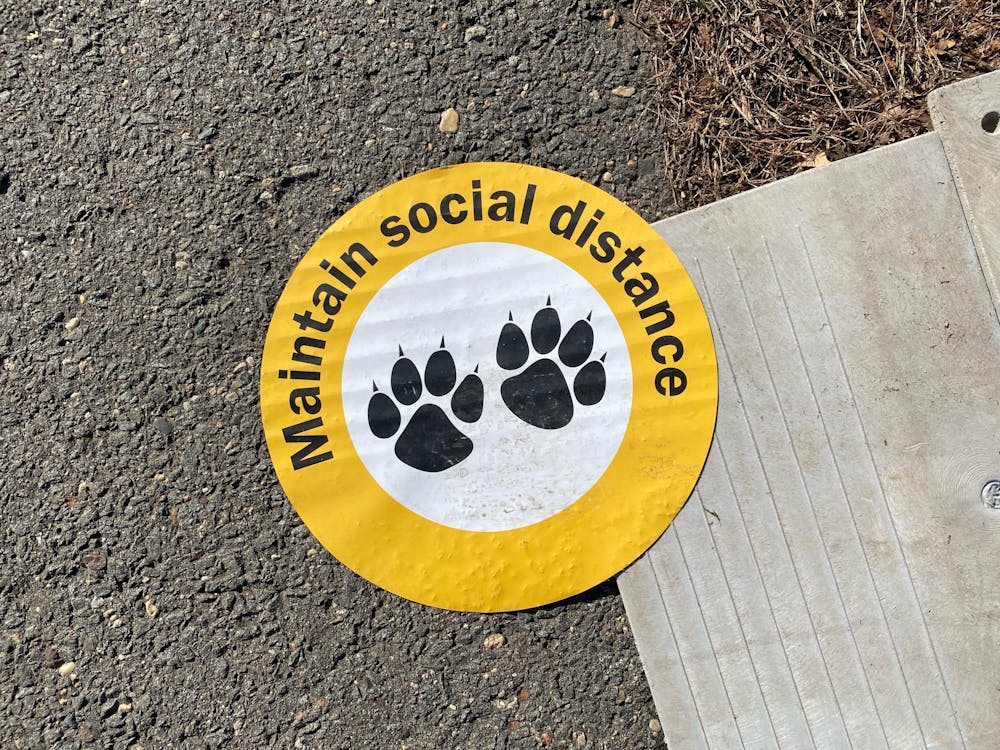In his November email inviting students back to campus for the spring, President Christopher Eisgruber ’83 remarked that, “We hope, but cannot guarantee, that there will be opportunities to increase interaction, and to phase in more activities, as the term progresses.” Dean of the College, Jill Dolan echoed this sentiment in a December email, informing students that “courses may have in-person components that residential students may attend, such as certain precepts, faculty office hours, or the occasional demonstration or project.”
As we are nearly two-thirds of the way through the semester, it has become clear that this will likely remain a “hope” and most definitely was not a guarantee. Despite low numbers of COVID-19 cases and a significantly reduced student population on campus, in-person interactions remain limited to meals at the dining hall, library reservations, and the occasional class. An overwhelming majority of classes remain on Zoom.
While social distancing is critical for our physical health, isolation impacts our mental health in ways that can’t be fixed by logging on to yet another Zoom event. I am certainly grateful to the University for coordinating online events and reopening dining halls and libraries. Socially distanced meals have certainly brought joy to my life on campus this semester, and having the ability to reserve a spot at the library has greatly increased my productivity. Yet, I believe these opportunities for in-person interactions are unnecessarily limited.
In many aspects of life on campus, a complete overhaul was implemented when some form of compromise may have been adequate. More importantly, a greater effort to reform life on campus so that more events could have taken place in person would have helped students connect with each other during an extremely difficult semester.
Looking at sports practices, it is clear that so long as the athletes wear masks and spread out to the best of their ability, they are largely able to remain safe. While the identification of a cluster among student athletes sparked an increase in their weekly COVID-19 tests, one cannot be sure that this cluster formed at practice or at other social events. Nonetheless, throughout the semester, teams have been able to practice both indoors and outdoors throughout the semester. Though practice looks different this spring, it still takes place, giving students the opportunity to train and reunite with their team. Likewise, the recent authorization of practice in-person for club sports indicates a step in the right direction; these activities provide students with a respite from academics while providing an opportunity for social interactions.
This type of considerate approach to athletics that strikes a middle ground between what is normal and what is safe ought to be extended to other aspects of campus life.
The low-hanging fruit here is the hallmark of a Princeton education: precepts. These small weekly meetings would translate well to life during a pandemic; keeping precepts in-person would not have led to large crowds or required extensive space in order to facilitate social distancing. While students would have to be spaced out, this is not an insurmountable task; much like sports practice, an in-person precept would look different, but it seems to be something that could still have been done safely.
Furthermore, freshman seminars, which are capped at 12 people, could also be adapted to pandemic life. Though obstacles such as masks and distanced seating would emerge, I feel that the drawbacks of Zoom outweigh those of socially distant instruction.

In speaking to Lara Zakaria ’24 about her experience in her in-person freshman seminar, FRS 160: Free Speech in Law, Ethics, and Politics, the unique benefits of in-person instruction were quite evident. Zakaria remarked that “conversation flows easier in person” because “in open discussions it’s easier to raise your hand and give input” whereas “on Zoom the act of having to mute and unmute stifles conversation.” While Zakaria noted that in-person instruction requires new features such as completion of the daily symptom check and extensive space between students, she nonetheless spoke positively about her experience and expressed a preference for in-person instruction.
Though these steps add a new layer to in-person teaching, they still seem feasible and practical for many courses, particularly precepts and seminars. My conversation with Zakaria reaffirmed that discussion flows much more naturally face-to-face since people can make direct eye contact and forgo the awkwardness of unmuting or an unstable internet connection.
More importantly, the spontaneous connections made through sitting next to someone in class are nontransferable to the virtual world. Instead, students are left feeling much more alone, in and beyond their studies.
Much like any Princeton student’s identity, the importance of in-person interactions extends beyond the classroom. The myriad extracurricular activities Princeton offers largely remain online this semester; while high membership prevents some clubs from meeting. Others, such as dance groups, could benefit from access to physical spaces like dance studios with limited capacities. Under current circumstances, extracurriculars tend to contribute to Zoom fatigue and require additional time sequestered in one’s dorm rather than provide students with an opportunity to socialize and rejuvenate.

As the semester progresses, it seems that unfortunately, the ship for expanding in-person events has sailed. However, in the forthcoming semester, which in all likelihood will also not be normal, I urge the University to make a greater effort to facilitate face-to-face interaction whenever possible and account for the overall health of its students, rather than leaving mental health by the wayside while promoting physical health.
Ava Milberg is a first-year from New York City. She can be reached at amilberg@princeton.edu.








